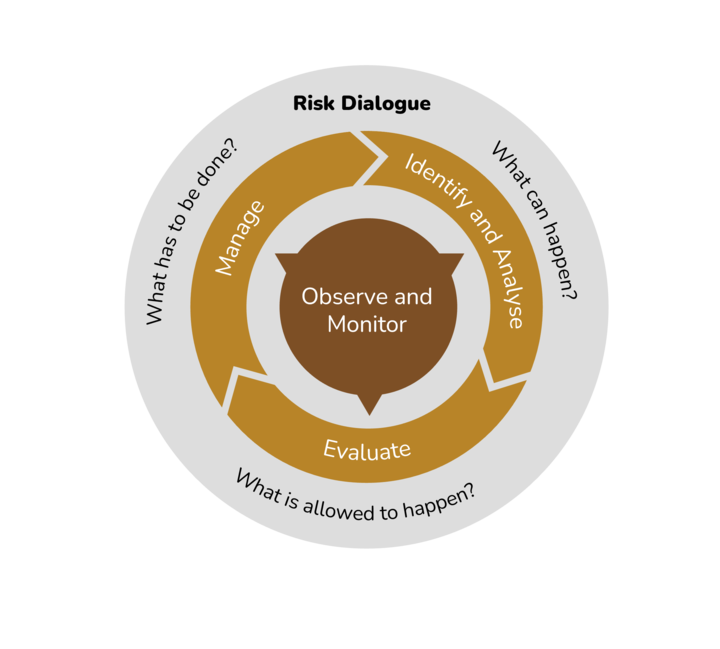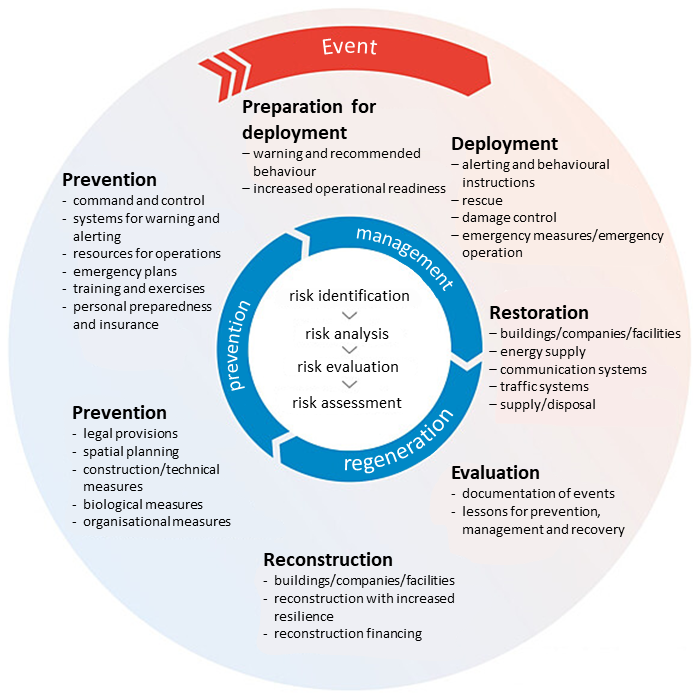According to PLANAT, integral risk management (IRM) is an important basis for implementing the strategy for dealing with risks from natural hazards. It is a holistic concept and means that risks are assessed in an overall view and the need for action is prioritised on this basis. IRM encompasses the methods and activities with which appropriate safety can be achieved and maintained.
Principles
The following three questions are answered:
- What can happen? The risk analysis records the intensity and frequency of natural hazards and the expected damage.
- What can happen? The risk assessment clarifies which risks are acceptable and which are not.
- What needs to be done? The entire range of measures is used to weigh up the risks and opportunities and define the optimum combination of measures.

IRM is an ongoing task, requires resources and helps to set priorities. PLANAT demands that IRM takes current and future developments into account, such as increasing land use or climate change.
Optimal measures
Joint consideration of optimal measures
IRM runs through three recurring phases: Recognising, assessing and managing risk. In this process, the joint weighing up of interests and solutions and the objective justification of decisions are challenging tasks. Especially because an overall optimal solution is not always the best solution for every aspect and for every individual stakeholder.
It is important to PLANAT that all measures are included on an equal footing. To ensure that this challenging task is successful, the phases are accompanied by risk dialogue. Dialogue and communication play a major role throughout the entire process of dealing with risks from natural hazards: the active and mutual exchange of knowledge and experience is key.
Possible measures can be found under the various natural hazards.


